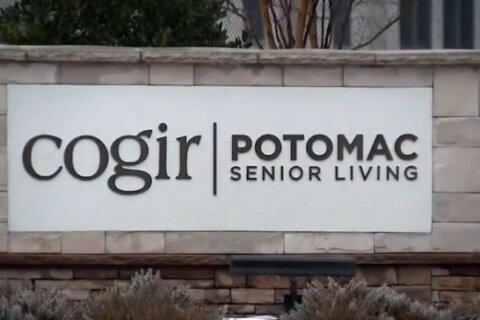New research based on interviews with focus groups of Latino families in Montgomery County, Maryland, shows young people — and their parents and guardians — say they need more information on preventing substance use and on dealing with the issue in their communities.
The report was co-authored by Dr. Amy Lewin, an associate professor at the University of Maryland’s School of Public Health, and was conducted after a Montgomery County Council report showed young Latinos — those between the ages of 10 and 21 — accounted for 42% of opioid overdose-related visits to emergency rooms in Montgomery County.
“Most of them do turn to social media, and sometimes to peers for information, and they know that that’s not necessarily the best form of information,” Lewin said of the young Latinos in the focus groups during an interview with WTOP.
Diego Uriburu, executive director of Identity, Inc., a nonprofit that creates opportunities and works in the Latino community, said parents were also struggling to get good information and find helpful approaches. When talking to their children, Uriburu said, they “were resorting to tactics that don’t work, like making threats, telling them that they’re going to die — fear tactics.”
Lewin said it was striking that parents and young people alike found themselves “on the same page,” looking for information and help, but knowing that their current efforts were not effective.
The young participants in the focus groups wanted to know where and how to get help, and parents wanted to know how to identify when a child might be using substances and how to broach the topic with their kids.
The young people in the focus groups ranged in ages from middle school through young adulthood, and were very clear on the need for access to mental health services.
“They very much recognized the need for better mental health support, for help with bullying, with violence, and they saw very clearly how these things are related to substance use,” Lewin told WTOP.
Lewin said the parent-child relationship “remains extremely important in adolescence, despite the sort of popular stereotype that kids turn away from their parents.”
She said working more closely with parents on ways to have constructive conversations with their children is an area that deserves attention.
“Supporting parents in this way is actually substance abuse prevention,” Lewin said.
Among the concerns raised by young people, the pressures to engage in drug use by peers, something Uriburu said could happen outside of school — at bus stops for example.
Among the recommendations from parents, said Uriburu, is creating “safe passages or corridors so kids could come home safely,” and becoming engaged in their schools during the school day “to protect the children, because the children were very clear, a lot of things are happening inside the bathrooms.”
While the Montgomery County school system has conducted outreach on opioids and allows students to have Naloxone, the overdose reversal treatment, on hand at school, Uriburu said there’s a sense of isolation in the Latino community, one that was worsened by the pandemic. He called for renewed, coordinated efforts involving schools, community groups and local government.
Another potential strategy, Uriburu said, might be to employ “Abuelina,” the character used in a public education campaign during the pandemic.
The grandmotherly character was created as a way to boost the vaccination rate in the area’s Latino community.
The social media and public campaign starring Abuelina resulted in the Latino community having the highest vaccination and testing rates in the region. Uriburu said the success of the campaign came from the “community-led” approach.
“People know her, and what comes out of her mouth is listened to and trusted. So we really need to engage Abuelina,” Uriburu said.
Get breaking news and daily headlines delivered to your email inbox by signing up here.
© 2024 WTOP. All Rights Reserved. This website is not intended for users located within the European Economic Area.








